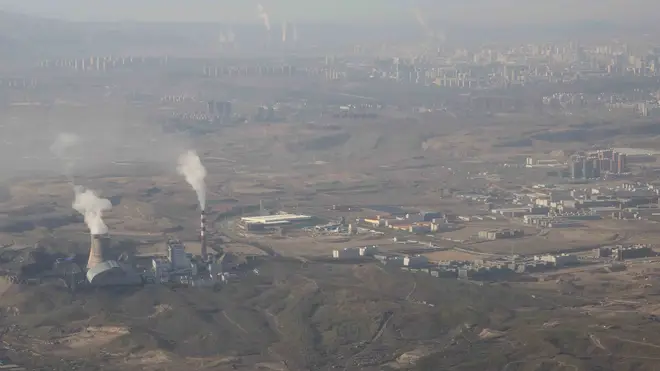
Lewis Goodall 10am - 12pm
21 September 2021, 22:54

China could shut 47 planned power plants in 20 developing countries.
The two biggest economies and largest carbon polluters in the world have announced separate financial attacks on climate change.
Chinese President Xi Jinping said his country will no longer fund coal-fired power plants abroad, surprising the world on climate for the second straight year at the UN General Assembly.
That came hours after US President Joe Biden announced a doubling of financial aid to poorer nations so they could switch to cleaner energy and cope with global warming’s worsening impacts.
“China will step up support for other developing countries in developing green and low-carbon energy, and will not build new coal-fired power projects abroad.”
President Xi at #UNGA
— Chinese Mission to UN (@Chinamission2un) September 21, 2021
This could provide some momentum going into major climate talks in Glasgow, Scotland, in less than six weeks, experts said.
Running up to the historic 2015 Paris climate deal, a joint US-China agreement kickstarted successful negotiations. This time, with China-US relations under pressure, the two nations made their announcements separately, hours and thousands of miles apart.
Depending on when China’s new coal policy goes into effect, it could shut 47 planned power plants in 20 developing countries that use the fuel that emits the most heat-trapping gases, about the same amount of coal power as from Germany, according to the European climate think-tank E3G.
“It’s a big deal. China was the only significant funder of overseas coal left. This announcement essentially ends all public support for coal globally,” said Joanna Lewis, an expert on China, energy and climate at Georgetown University.
“This is the announcement many have been waiting for.”

Japan and South Korea already announced they were getting out of the coal-financing business and China was bigger than either of those, said Byford Tsang, a policy analyst for E3G.
Mr Tsang cautioned that the one sentence line in President Xi’s speech that mentioned this new policy lacked details like effective dates and whether it applied to private funding as well as public funding.
While this represents a big step, it is not quite a death knell for coal, Mr Tsang said. That is because China last year added as much new coal power domestically as was just cancelled abroad, he said.
But Ms Lewis said official data from the Chinese Ministry of Commerce showed no new coal plants financed abroad in the first half of 2021.
What will really matter is when China stops building new coal plants at home and shuts old ones, Mr Tsang said. That will be part of a push in the G-20 meetings in Italy next month, he added.